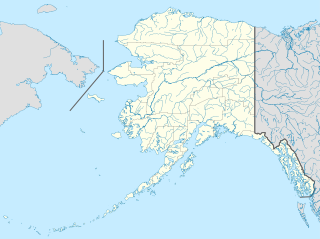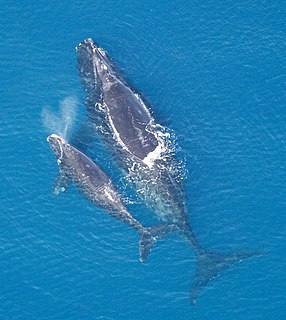 W
WWhale conservation refers to the conservation of whales.
 W
WThe Alfaguara project is a marine life conservation project operated from Puñihuil in the northwest of Chiloé Island, the main island in the Chiloé Archipelago in southern Chile.
 W
WAnti-whaling refers to actions taken by those who seek to end whaling in various forms, whether locally or globally in the pursuit of marine conservation. Such activism is often a response to specific conflicts with pro-whaling countries and organizations that practice commercial whaling and/or research whaling, as well as with indigenous groups engaged in subsistence whaling. Some anti-whaling factions have received criticism and legal action for extreme methods including violent direct action. The term anti-whaling may also be used to describe beliefs and activities related to these actions.
 W
WThe Ending the Captivity of Whales and Dolphins Act is an act of the Parliament of Canada. Passed into law in 2019, the Act bans the capture and keeping in captivity of cetaceans. There is a grandfather clause for cetaceans in captivity when the law first came into force, and other exceptions, such as where a provincial government has issued a licence to keep cetaceans for research purposes.
 W
WRaymond Maurice Gilmore was an American zoologist and a recognized authority on whales. He conducted the first census of California gray whales and is credited with creating public interest in their conservation by leading the earliest whale-watching excursions for the San Diego Natural History Museum. Guiding groups of whale-watchers beginning in 1958, Gilmore was the first onboard naturalist in San Diego; he continued his popular excursions for 25 years. Known as the father of whale watching, Gilmore was the leading expert on California gray whales.
 W
WThe International Convention for the Regulation of Whaling (ICRW) is an international environmental agreement aimed at the "proper conservation of whale stocks and thus make possible the orderly development of the whaling industry". It governs the commercial, scientific, and aboriginal subsistence whaling practices of 88 member nations.
 W
WThe Marine Mammal Protection Act (MMPA) was the first act of the United States Congress to call specifically for an ecosystem approach to wildlife management.
 W
WThe Marine Mammals Protection Act 1978 is an Act of Parliament passed in New Zealand in 1978. It is administered by the Department of Conservation.
 W
WThe Old Harbour Museum is a South African museum situated on the coast, in the heart of Hermanus. The town originally developed around this harbour from around the middle of the nineteenth century when plentiful fish and fresh water was found in the area. The Fishermen's Village section of the museum is situated above the old harbour across from Market Square.
 W
WOperation Breakthrough was a US-Soviet effort to free three gray whales from pack ice in the Beaufort Sea near Point Barrow in the U.S. state of Alaska in 1988. The whales' plight generated media attention that led to the collaboration of multiple governments and organizations to free them. The youngest whale died during the effort and it is unknown if the remaining two whales ultimately survived.
 W
WProject Jonah is an environmental organisation that was established in 1974 in New Zealand. It specialises in the protection and conservation of marine mammals.
 W
WThe National Marine Fisheries Service (NMFS) and the National Oceanic and Atmospheric Administration (NOAA) established a rule in 2008 to implement vessel speed restrictions of 10 knots or less on ships 65 ft (20 m) or longer in various locations along the East Coast of the United States. The purpose of the regulations was to reduce the probability of deaths and injuries to endangered North Atlantic right whales due to collisions with ships. The rule was enacted December 9, 2008.
 W
WWhale Wars is a weekly American documentary-style reality television series that premiered on November 7, 2008 on the Animal Planet cable channel. The program followed Paul Watson, founder of the Sea Shepherd Conservation Society, as he and the crew aboard their various vessels attempted to stop the killing of whales by Japanese vessels (whalers) off the coast of Antarctica.